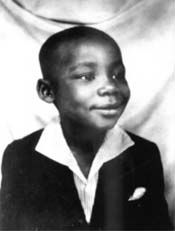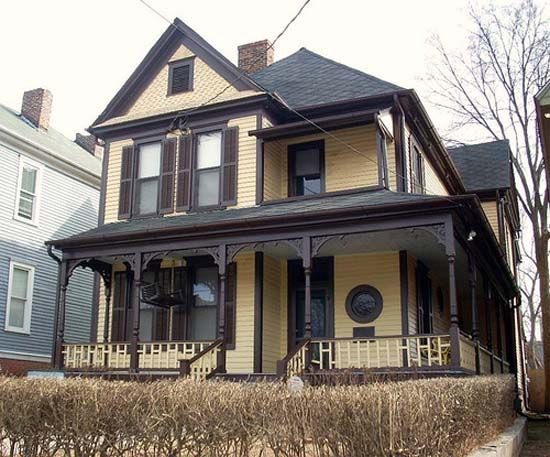Martin Luther King, Jr. was born in Atlanta, GA, on Jan 15 in 1929.
Oh, I know we celebrate his birthday later on this month, but I wanted to think about him as a young child, and as a young man before he went on to become an icon of the civil rights movement.
He was not so very different from many young black men born into a black middle class family.
Like many members of the black middle class his father, Michael was a preacher.
Like many members of the black middle class his mama was a teacher.
Like many members of the black middle class, the family roots were not far removed from poverty.
King’s paternal grandfather, James Albert King, had been a sharecropper near the small town of Stockbridge, Georgia, outside Atlanta. Like most sharecroppers, he had worked hard and earned little. King, Sr. was the second of ten children. He had left Stockbridge for Atlanta at the age of sixteen, with nothing but a sixth-grade education and a pair of shoes.
In Atlanta he worked odd jobs and studied, and slowly developed a reputation as a preacher. While preaching at two small churches outside of Atlanta, he met Alberta Christine Williams, his future wife, and King, Jr.’s mother. She was a graduate of Atlanta’s Spelman College, had attended the Hampton Institute in Virginia, and had returned to Atlanta to teach. Her father, the Reverend Adam Daniel Williams, presided over Atlanta’s well-established Ebenezer Baptist Church.
When King, Sr. and Williams married, they moved into the Williams home on Auburn Avenue, the main street of Atlanta’s African American business district.
After some time had passed, her father asked King, Sr. to serve as assistant pastor at Ebenezer, which he did. When the senior pastor died of a heart attack in 1931, King, Sr. took over his duties.
He was really born with the name Michael King Jr. His father changed his own name and his sons’ in 1939 after a trip to Germany-to honor Martin Luther.
When I read about his childhood I am reminded that being middle class-and black-was not a protection from racism.
It still isn’t.
Martin Luther King Jr. was not an only child. He grew up with a sister who was older than him, Willie Christine King, and a younger brother, Alfred Daniel Williams King. Martin Luther King’s childhood was a normal happy upbringing. He and his siblings consisted learned to play the piano from their mom and were guided by the spiritual teachings from their dad and grandfather.
But the family was quickly schooled on the harsh reality of the racial segregation of the south. A family outing to a shoe store resulted in the family being ushered to the back exit after being told by the storeowner that blacks were not allowed in the store. This was one of Martin Luther King’s first episodes that were a result of the Jim Crow laws that were in effect at that time.
His childhood story illustrates something more important than what he went on to accomplish.
When we look closely at what shapes people in the black community to fight for change we have to remember two important things.
The centrality of the church in our community. And the bond of blackness forged by racism that supersedes and transcends classic “class” analysis.
To be white and middle class tends to separate middle class white people from poor whites. Rarely is there a shared cultural identity. There is often open derision-illustrated by pejorative terms like “trailer trash”.
The black middle class does not have the luxury of abandoning those who are poor. Nor have we abandoned strong ties to our churches.
Many of us are clear that we are only a generation or two from sharecropping or slavery. Secondly we wear our brand on our skin-the mark of blackness places us in the same group no matter our social class.
The black church is still the center of much black life, and leadership is still drawn from it. Few of our churches are uni-class. We may attend service and be sitting in the same pew with a housemaid or day laborer.
Even those who moved away from Christianity, gathered around other preachers-like Malcolm.
The lesson I learn when I look at the face of young Martin, is that he could have been any black child I see today. One of those black children missing no one pays attention to. One of those black children murdered by stray gunfire. One of those black children who winds up in the school to prison pipeline. One of those black kids headed off to Sunday school.
I am also reminded (no matter my own non-christian persuasion) that those on the left who deride religion and spiritual faith openly on forums such as these, do little to forge the coalitions we need to move forward.
For many on the left who pride themselves in their openly militant atheism-poor whites and their churches and revival meetings are merely objects of scorn. There is vocal derision of evangelicals, yet one of the most powerful progressive voices we hear today is that of Rev. William Barber, head of the N.C. NAACP, an evangelical pastor.
The fact that you don’t believe is your business. Mocking those that do disses many members of our most solid and stable Democratic Party voting block.
Young Martin’s family was guided by their strong spiritual belief. This is true in many black families.
So when you quote or cite the Rev. Dr. Martin Luther King Jr. remember young Martin.
Before you post remarks categorizing all people of faith as delusional, remember young Martin.
Before we get swept away in the celebrations to come-look at his young face. Then look at the faces of young black school kids.
Celebrate our children today.
Accept that many are growing up as he did.
Guided by faith.
“Faith is taking the first step even when you don’t see the whole staircase.”
Martin Luther King, Jr.
cross-posted from Black Kos


28 comments